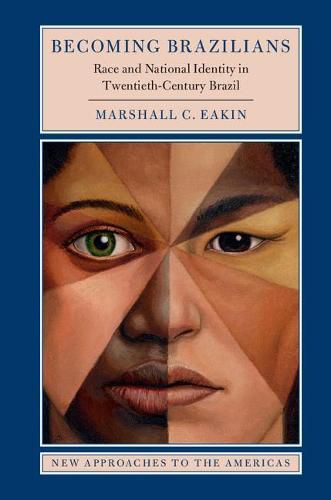Readings Newsletter
Become a Readings Member to make your shopping experience even easier.
Sign in or sign up for free!
You’re not far away from qualifying for FREE standard shipping within Australia
You’ve qualified for FREE standard shipping within Australia
The cart is loading…






This book traces the rise and decline of Gilberto Freyre’s vision of racial and cultural mixture (mesticagem - or race mixing) as the defining feature of Brazilian culture in the twentieth century. Eakin traces how mesticagem moved from a conversation among a small group of intellectuals to become the dominant feature of Brazilian national identity, demonstrating how diverse Brazilians embraced mesticagem, via popular music, film and television, literature, soccer, and protest movements. The Freyrean vision of the unity of Brazilians built on mesticagem begins a gradual decline in the 1980s with the emergence of an identity politics stressing racial differences and multiculturalism. The book combines intellectual history, sociological and anthropological field work, political science, and cultural studies for a wide-ranging analysis of how Brazilians - across social classes - became Brazilians.
$9.00 standard shipping within Australia
FREE standard shipping within Australia for orders over $100.00
Express & International shipping calculated at checkout
This book traces the rise and decline of Gilberto Freyre’s vision of racial and cultural mixture (mesticagem - or race mixing) as the defining feature of Brazilian culture in the twentieth century. Eakin traces how mesticagem moved from a conversation among a small group of intellectuals to become the dominant feature of Brazilian national identity, demonstrating how diverse Brazilians embraced mesticagem, via popular music, film and television, literature, soccer, and protest movements. The Freyrean vision of the unity of Brazilians built on mesticagem begins a gradual decline in the 1980s with the emergence of an identity politics stressing racial differences and multiculturalism. The book combines intellectual history, sociological and anthropological field work, political science, and cultural studies for a wide-ranging analysis of how Brazilians - across social classes - became Brazilians.